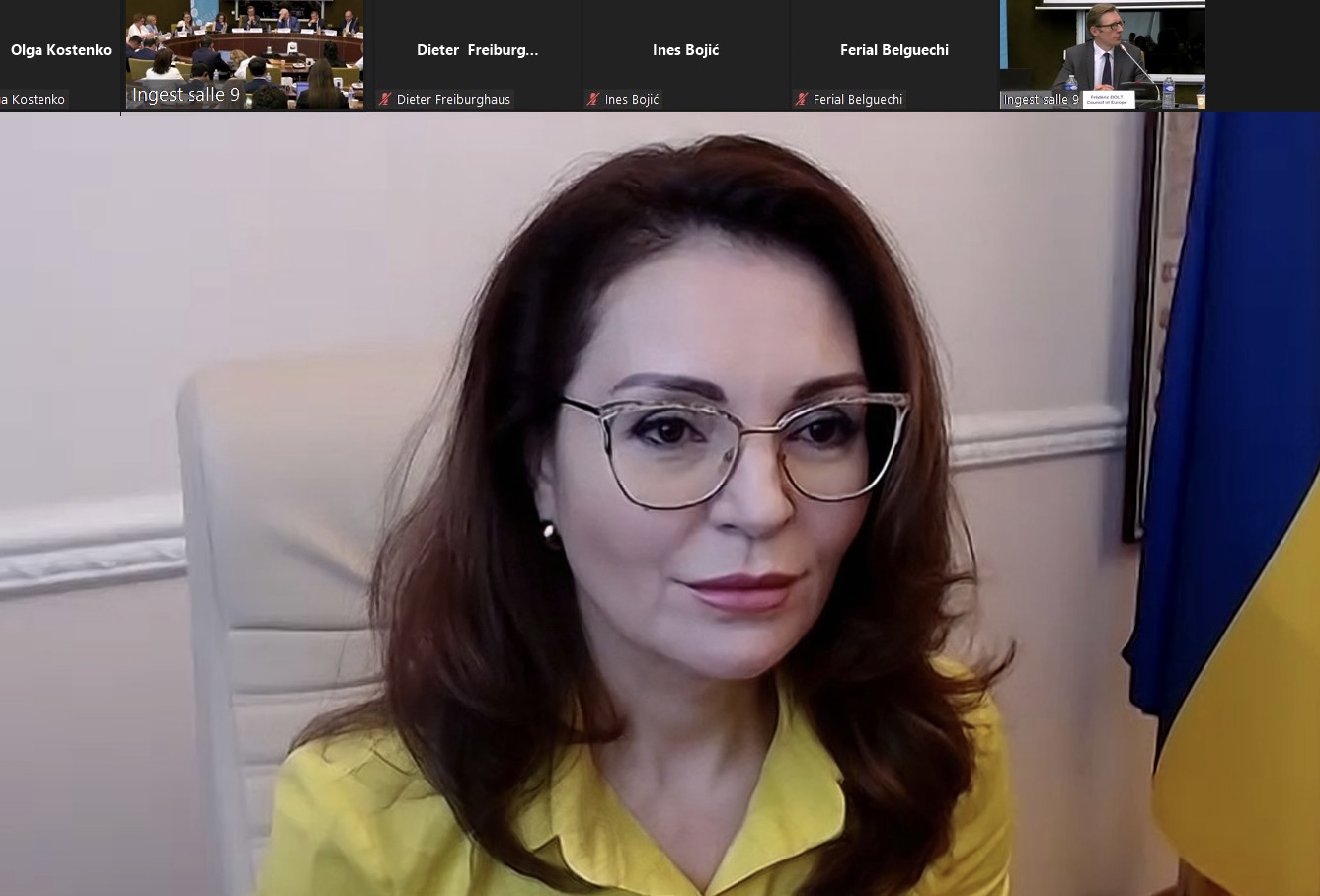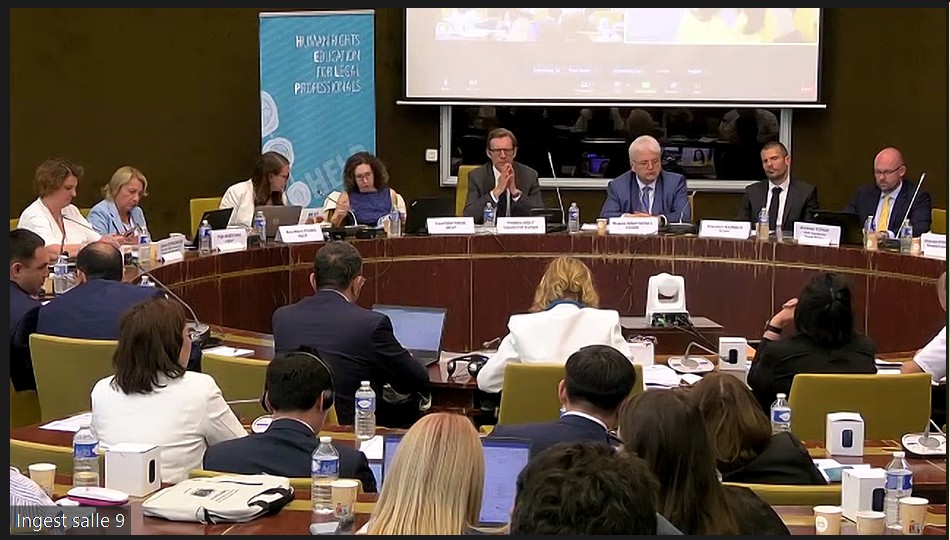
This year’s HELP (European Programme for Human Rights) Network Conference was organised under the Latvian Presidency of the Committee of Ministers of the Council of Europe in Strasbourg. The event was attended by over 125 representatives of HELP Coordination and Information Centres and partner institutions from 49 countries.
The participants discussed trends and challenges in European education for legal professionals, achievements of the HELP programme, and learned about European legal professional networks and other HELP projects. One of the conference sessions was dedicated to the Council of Europe’s response to Russian aggression in Ukraine. In particular, the activities and plans of the HELP (Human Rights Education for Legal Professionals) Project for Ukraine, including during the war, were presented.”
During this session, the Head of the NAUCS spoke online about the development of legal culture in the public service in Ukraine. In particular, she spoke about the need to respect and protect human rights and freedoms, the principles of barrier-free access, non-discrimination, gender equality, prevention of bullying, mobbing and bossing in the public sector. Natalia Alushyna focused special attention on the professional training of public servants in these areas.

“Ukraine is developing new work methodologies, amending the legislative framework, and adopting best practices from around the world to develop a culture of lawfulness in the public service. The NAUCS team has developed and approved the Guidelines for creating a barrier-free workplace in government agencies. Public servants also joined the First Lady’s initiative to support the mental health of Ukrainians, ” How are you?”. We have made available to the public training courses on crisis communications for public servants to help them effectively interact and respond to crisis situations, prevent conflicts and prevent burnout in the workplace. We are continuing to develop a training programme on post-conflict recovery in government agencies. We take into account the importance of preventive measures in the form of self-education, deepening knowledge and developing new skills of public servants. This is what will create a comfortable working environment for them even during the war, and thus allow them to be more effective,” said Natalia Alushyna.

According to the Head of the NAUCS, one of the Agency’s tasks is to develop and disseminate practice-oriented training programmes for public servants to develop competencies in the areas of human rights, non-discrimination and gender equality.
To find out what knowledge and competences public servants lack, the NAUCS regularly reviews training needs, engages other representatives of central executive agencies, international and foreign institutions implementing international technical assistance projects (programmes), etc.
So far, three standardised training programmes have been developed and approved: “Identifying and Responding to Conflict-Related Sexual Violence and Assisting Victims”, “International Humanitarian Law in the Professional Activities of Public Servants” and “Organising Work to Ensure the Right to Access Public Information in Public Authorities and Local Self-Government Bodies”.
The number of people who have received such training services is growing every year. In particular, this year, 1,649 people are studying human rights protection and anti-discrimination, and 2,584 people are studying gender equality. In 2024, 1,704 and 2,269 people are scheduled to receive training, respectively.
This year, active cooperation with the HELP (Human Rights Education for Lawyers) project for Ukraine began. It is planned to implement educational and information and communication initiatives using online tools and a human rights training methodology developed on the basis of the Council of Europe’s internal expertise.
These initiatives include the development of a curriculum and training for category A civil servants on transitional justice based on the HELP project’s online course “Transitional Justice and Human Rights”. It was also agreed to provide training for trainers on the HELP methodology in the area of human rights.
The HELP Network Conference is an annual meeting of members and partners of the HELP (Human Rights Education for Legal Professionals) network. It is a European platform for presenting the latest developed courses and key HELP projects. It is also a forum for discussing mechanisms to increase the impact of human rights education and how to improve effective cooperation between all HELP members and partners.
